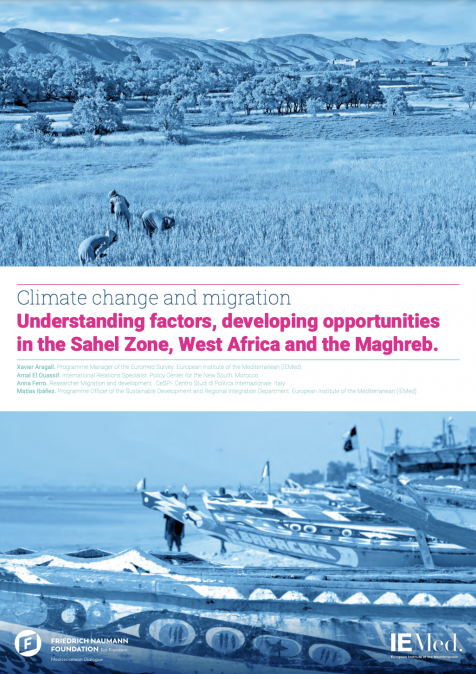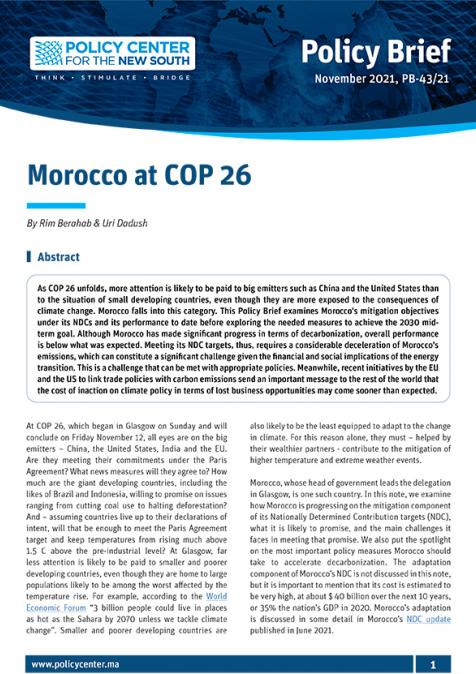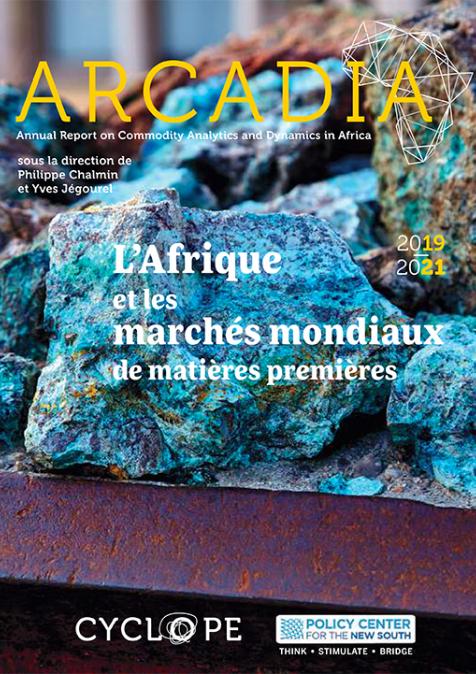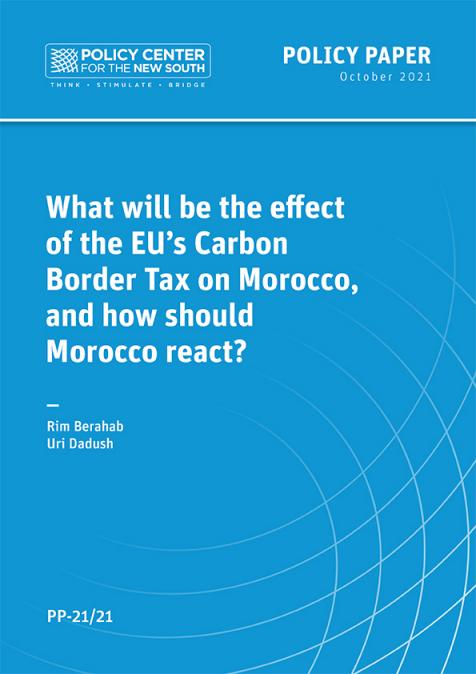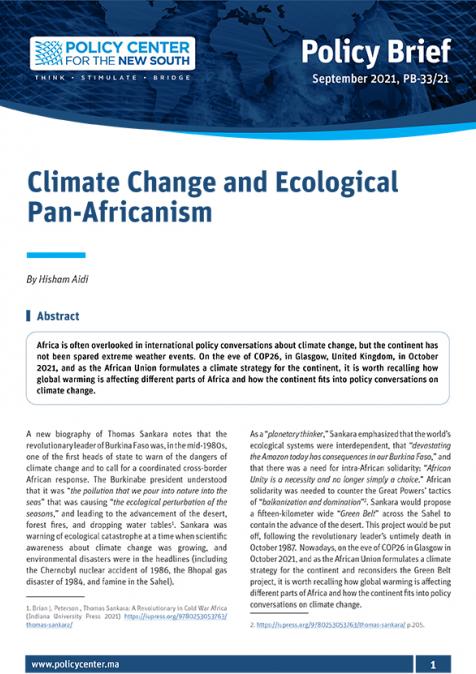Publications /
Book / Report
This report was originally published on iemed.org
In the last decade, it has become very clear that climate change is not a problem of the future. This threat multiplier is causing severe natural disasters, rising sea levels, desertification, and rising temperatures in every continent, reminding us that it is not only the global South that is experiencing and will be experiencing its direct effects. It is true, however, that some of the most severe impacts of climate change are indeed being felt in the Sahel, the Maghreb, and West Africa, where millions of people are facing increasing water scarcity, desertification, and land degradation, to name a few. These impacts have serious implications for human development, food security, and political stability, and are already driving a growing trend of migration across the region.
Although most migration is intraregional, migratory flows toward Europe will increase steadily at potentially unsustainable levels if climate change continues to affect basic resources such as water and food security. The UNHCR recently estimated that approximately 1.2 billion people are at risk of climate-related displacement. This displacement, which we have been able to already observe during research for this report, will in turn, be the cause of serious political instability in migrants’ countries of origin and destination, as well as between them at the international level. It is therefore critical that awareness of climate change and its impact on human displacement is widely recognized and that it leads to more comprehensive and coordinated responses by policymakers and governing bodies. Current predictions indicate that mitigation and adaptation efforts must be further strengthened to give people a chance to live safely in a new climate reality. Economic development plays a critical role in this effort and helps ensure societies are resilient to climate change.
Migration is a human phenomenon that has always occurred for a variety of reasons. It is up to those in power to ensure that the way it happens remains a humane process and that human rights remain a priority. People forced to leave their homes and communities in search of more stable conditions and better opportunities are often demonized in political rhetoric and the media, but as climate change makes migration increasingly inevitable, it is as important as ever to be aware of its causes. We are confident that the information gathered in this report reflects these ideas while bringing more attention to this critical issue on all shores of the Mediterranean. Mitigating some of the worst effects of global warming is undoubtedly an issue on which we must act now. In doing so, we can help ensure a more sustainable and prosperous future for all.
David Henneberger, Head of Office Spain, Italy, Portugal & Mediterranean Dialogue, Friedrich Naumann Foundation for Freedom
Roger Albinyana, Managing Director, European Institute of the Mediterranean (IEMed)

